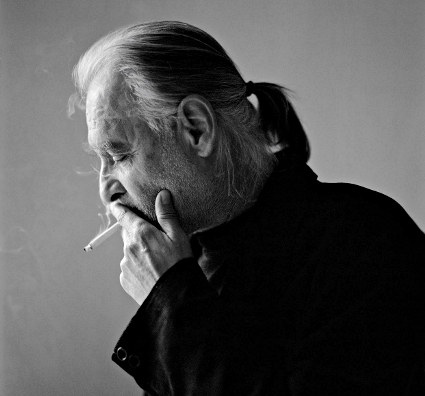Turin Horse, The | A torinói ló – dir. Béla Tarr, 2010
date: 03/08/2011, time: 21:45, place: The Big Cinema, film program: world under canvas, artistic program: filmsfilm program: the audience poll,
HU, DE, FR, CH, USA | 2011 | b&w | 146 min
reż|dir Béla Tarr pro|pro Gábor Téni sce|sc László Krasznahorkai, Béla Tarr zdj|ph Fred Kelemen muz|mus Mihály Vig mon|ed Ágnes Hranitzky ob|cast János Derzsi, Erika Bók, Mihály Kormos dys|dis Stowarzyszenie Nowe Horyzonty
1889. German philosopher Friedrich Nietzsche witnessed the whipping of a horse while traveling in Turin, Italy. He tossed his arms around the horse’s neck to protect it then collapsed to the ground. In less than one month, Nietzsche would be diagnosed with a serious mental illness that he suffered for the next eleven years until his death. Outstanding Hungarian director Béla Tarr untowardly focuses his last film not on the philosopher, but on answer to the question whatever did happened to the horse? The author of a screenplay of Turin horse is Tarr’s permanent associate and friend, writer László Krasznahorkai. His most famous common film was a monumental Sátántangó, based on Krasznohorkai’s novel. Evaluated as the most radical among Tarr’s films Turin Horse was a revelation at the last Berlin International Film Festival, where it was awarded with FIPRESCI Prize and Jury Grand Prix.
AWARDS
2011 Berlin IFF – Grand Prix Jury in category Best Film for Béla Tarr
2011 Berlin IFF – FIPRESCI Prize for Béla Tarr
2011 Berlin IFF – Golden Bear nomination for Béla Tarr
DIRECTOR | Béla Tarr (1955)
Hungarian director and screenplay writer, considered one of the most avant-garde contemporary filmmakers. 1981 graduated the Hungarian School of Theatrical and Cinematic Arts in Budapest. Since 1981 he is a member of the European Film Academy. In his films Tarr raises metaphysical issues, the problems of human nature, loneliness, deformations of the psyche and disabilities. He has created an unique film language with a semi-documental narration and not linear form of telling a story through long, black and white shots. Since twenty years Béla Tarr has been married to Agnes Hranitzky, co-director of his films. Together with a Hungarian writer László Krasznahorkai he has written screenplays to films Damnation, Satan’s Tango and Turin Horse.










.jpg)